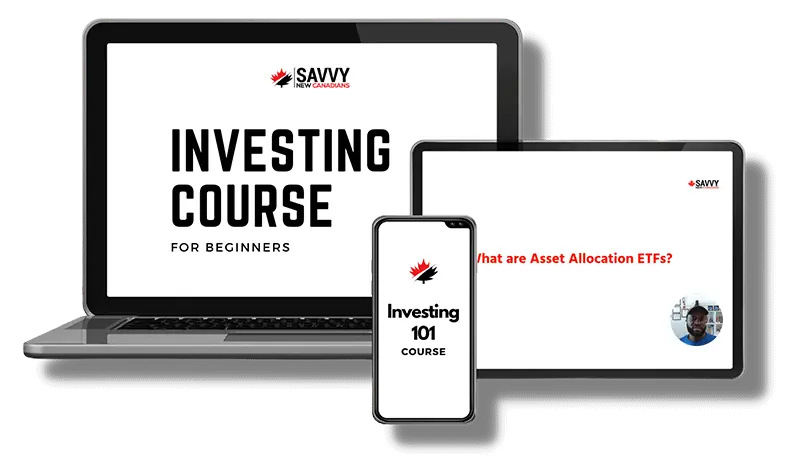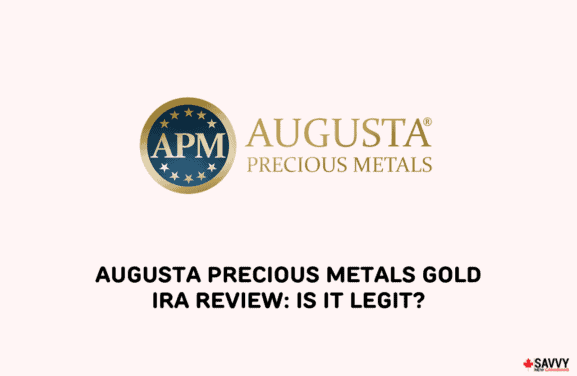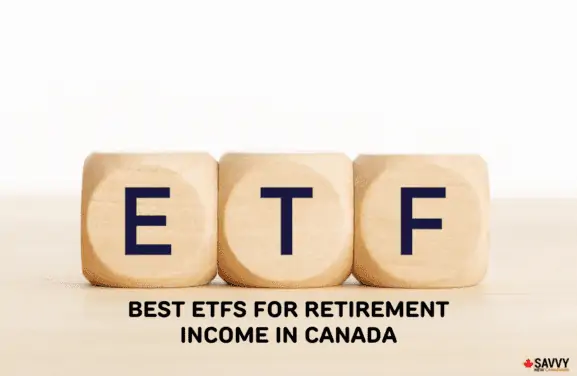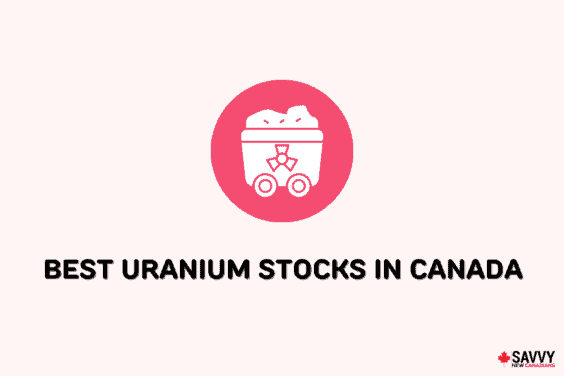Liquidity of your assets is crucial when you need to access cash in a hurry. This is why owning liquid investments as a part of your portfolio is important because you just never know when you might need some emergency funds.
Luckily for Canadians, there are plenty of ways to invest your money in highly liquid investments. If you know you will need access to cash in the future, then read our list of the 9 best liquid investments in Canada for May 2024.
Best Liquid Investments in Canada
1. High-Interest Savings Accounts (HISA)
You have probably noticed that in the past couple of years, High-Interest Savings Accounts or HISAs, have grown in popularity. The reasons for this are clear: interest rates have risen significantly, and there have been higher volatility in assets like equities and ETFs. This has created the perfect environment for Canadians to embrace the HISA as a low-risk liquid investment in Canada.
A HISA is exactly as it sounds: a savings account that pays a higher interest rate than a regular savings account. HISA interest rates in Canada range from about 1% to more than 5% APY which stands for the Annual Percentage Yield of the account. As we mentioned, HISAs are extremely low-risk liquid investments that provide safety and, more importantly, instant access to your funds.
Key Takeaways
- HISAs are a low-risk liquid investment
- Interest rates will fluctuate with the Bank of Canada’s rate
- HISA APY ranges from 1% to 6%, depending on the bank
- Check for promotional rates for new sign-ups
Simplii High-Interest Savings Account

5.90%* rate for 5 months
Unlimited debits and bill payments
Unlimited Interac e-Transfers
$400 cash bonus offer with a free chequing account
Neo Savings Account

4.00% non-promo interest rate
No monthly fees
Unlimited free transactions
Access to a no-annual-fee credit card
EQ Bank Personal Account

Earn up to 4.00% interest
No monthly account fees or minimum balance
Unlimited debit transactions and e-Transfers
Free cashback card & no ATM fees
Supports mobile cheque deposits
2. Interest-Paying Chequing Accounts
Chequing accounts in Canada are notorious for paying out a low-interest rate, especially from the big Canadian banks. But there has been an increase in smaller banks offering chequing accounts that pay a decent interest rate.
Generally, these chequing accounts offer a much lower interest rate than HISAs but do offer the flexibility and functionality of a standard chequing account.
Key Takeaways
- Interest-paying chequing accounts are not as common as HISAs
- Receive a higher interest rate with the flexibility of a chequing account
3. Redeemable or Short-Term Guaranteed Investment Certificates (GICs)
Due to the higher interest rates, many investors are turning to GICs and other fixed-income assets.
GICs or Guaranteed Investment Certificates are similar to making a loan to a bank or other financial institution. They take this money and re-invest it into higher-paying assets while you get to collect a guaranteed rate of interest on your loan. At the end of the GIC term, you receive back the entirety of your initial investment.
As you can imagine, GICs are also a low-risk liquid investment for Canadian investors. They are slightly less liquid than HISAs since you do need to redeem your GIC before getting your funds. If you buy a redeemable or cashable GIC, you can redeem it anytime with no penalty for early redemption.
Short-term GICs are usually available in increments of 3, 6, and 9 months depending on the institution. With short-term GICs, there is the chance of a penalty for early redemption.
Key Takeaways
- Redeemable GICs have no penalty for early redemption
- Short-term GICs usually offer 3, 6, and 9-month increments
- Earn guaranteed interest payments plus the principal back at the end of the term
Related: Best GIC Rates in Canada.
4. Short-Term Money Market Funds
Money market funds are a type of mutual fund that primarily invests in highly liquid, short-term debt instruments. In Canada, these can include assets like cash, treasury bills, and government securities.
The benefit of short-term money market funds is that they are highly liquid investments that also provide a high floor of safety. It is important to remember that money market funds are still mutual funds, so they come with a MER or management expense ratio.
Key Takeaways
- Money Market Funds are mutual funds that invest in highly-liquid, short-term debt assets
- Be wary of some funds with a higher MER
5. Cash or HISA Exchange Traded Funds (ETFs)
If you want to earn a high-interest rate and avoid paying high MER fees, it might be time to consider a cash or HISA ETF. ETFs differ from mutual funds in that they trade on stock exchanges like the TSX and are bought as shares. While ETFs still come with an MER, the fees are typically much less than what you would pay with a mutual fund in Canada.
Cash ETFs are designed to provide a high-interest rate which usually pays out monthly distributions. An advantage to holding a cash ETF is that they are highly liquid investments while avoiding any minimum balance requirements in a HISA.
The ETF provider takes the invested funds and holds them in various HISAs from major Canadian banks. The interest earned is paid out to shareholders of the ETF as a distribution.
Key Takeaways
- HISA ETFs pay regular distributions and trade on stock exchanges
- There is no minimum balance requirement for HISA ETFs
- These funds offer low capital growth but a safe floor for your cash
6. Stocks
Most people do not consider stocks as a liquid investment because of the risk involved. Investing in stocks isn’t for the faint of heart, as a volatile market can potentially deplete funds that you are planning to use. The benefit of investing in stocks is that you can earn more than almost any other asset class.
Stocks are liquid in that you can sell them and usually will immediately have those funds in your account. They are a higher-risk liquid investment but have the most upside of any other assets on this list.
Key Takeaways
- Stocks are the riskiest liquid asset but also offer the highest potential returns
- You will need a brokerage account and may have to pay commission fees
- Stocks require more education and knowledge, as well as company research
Qtrade

Up to $150 sign-up bonus
Trade stocks, ETFs, options, bonds, etc.
Excellent platform for newbies and seasoned investors
Competitive trading fees
Excellent customer service
7. Exchange Traded Funds (ETFs)
ETFs have also grown in popularity among Canadian investors. These funds are just as liquid as stocks are but provide a higher floor of safety as they are not impacted as much by day-to-day market volatility.
There are more than 1,300 different ETFs that are listed in Canada—these range from specific sectors and indexes to owning the entire global stock market. Like stocks, ETFs can provide capital gains or losses, pay out dividends, and even be traded via options contracts.
Key Takeaways
- ETFs are baskets of assets that trade on stock exchanges
- Generally, they provide a floor of safety due to their diversification
- Total returns can trail those of individual stocks
- ETFs also come with MERs which can eat into long-term gains
Featured Offers
Questrade

On Questrade’s website
- Trade stocks, ETFs, bonds, options, mutual funds, currencies, etc.
- $50 free trade credit when you deposit $1,000 or more.
- Access to advanced charting and trading tools.
- Transfer fees are waived by up to $150.
Wealthsimple Trade

On Wealthsimple’s website
- Trade thousands of US and Canadian stocks and ETFs commission-free, plus crypto.
- $25 bonus when you sign up and deposit $150 or more.
- Track stocks easily with a watchlist and set alerts.
- Transfer fees are waived by up to $150.
8. Mutual Funds
We covered mutual funds in the short-term money market fund section, but here we’ll go into more detail. Mutual funds have long been a cornerstone of Canadian investment portfolios. They are offered by financial institutions and offer investors a passive way to gain exposure to a basket of assets like stocks or bonds.
These funds charge a MER for a fund manager to manage the assets, but like stocks and ETFs, also pay out distributions that can be re-invested into more units. There are several thousand mutual funds listed in Canada, but you won’t find them on the TSX or any stock exchange.
Key Takeaways
- Mutual funds are baskets of assets that are offered by financial institutions
- Typically, they come with higher MERs than ETFs
- Mutual funds also pay out dividends through distributions
9. Bonds
Bonds are fixed-income assets that are similar to GICs. Buying a bond is essentially loaning your money to a bank or corporation or even a municipal, provincial, or federal government.
In return, you receive a steady distribution of interest and your initial principal at the end of the term. Unlike GICs, bonds do have some upside potential, as the price of bonds can fluctuate with changes to the interest rates.
Key Takeaways
- Bonds are fixed-income assets that payout guaranteed distributions
- You can buy bonds from banks, corporations, and even the government
- Bonds tend to have an inverse relationship to stocks and are a low-risk investment
What is a Liquid Investment?
Liquid investments in Canada can be quickly sold and exchanged for cash. Some assets, like stocks, can only be sold during market hours unless your brokerage offers after-hours or even 24-hour trading.
For the most part, liquid investments tend to have higher security since it is presumed that those funds will be needed at some point in the near future.
How to Choose a Liquid Investment
Choosing which liquid investment asset depends on various factors for each investor. Some things to consider include your own financial goals, risk tolerance, liquidity, time horizon, costs/fees, and any potential returns from the investment.
Putting your money into a liquid investment implies that you anticipate needing that cash in the near future. If that is the case, then the most important things to factor in are the liquidity of the investment and your time horizon. Being able to access cash is more important with liquid investments than overall returns.
If you have a higher risk tolerance, then you can consider assets like stocks or ETFs. The potential gains are greater but there is also a higher chance of capital losses. Most liquid investments in Canada are lower risk and aim to protect your funds while also being able to exchange them quickly for cash.
Pros and Cons of Liquid Investments
The clear benefit of investing in liquid investments is near-immediate access to your money when you need it. This is especially true for investments like a HISA.
Most liquid investments are stable and not too risky by design. The point is to preserve your capital for when you need to use it.
Unfortunately, most liquid investments do not provide high returns. This is why gains made from a liquid investment are usually secondary to things like liquidity and time horizon.
If you do need to liquidate your investment in a pinch, you might still be charged brokerage fees for selling assets like stocks or ETFs.
Illiquid Investments in Canada
Private Equity
The most common form of private equity is investing in a company that has yet to go public. This means your money could be tied up with the company for an extended period of time or even until the company chooses to go public.
Collectibles and Art
It is not uncommon for people to collect things like art, cars, or sports memorabilia as an investment. These investments can grow exponentially in value over time but are highly illiquid as you need to find a buyer to make the transaction. Before selling any collectibles or art, you will likely need to get it appraised or graded by a proper authority.
Precious Metals
Believe it or not, plenty of Canadians still invest in precious metals like gold, silver, or platinum. They can hold these with a bank, in a safety deposit box, or even at home.
Most precious metals do not see high fluctuations in price and are kept as a hedge against inflation. Unfortunately, like art, you need to be able to take your precious metals somewhere to sell them and exchange them for cash.
Real Estate
Real estate is perhaps the most illiquid asset of them all. Whether you own a house, a commercial property, or a plot of land, you will need someone to buy it from you. If you are in need of immediate liquidity, then liquid real estate investments are not ideal.
Even though the housing market in Canada is always competitive, it can take months or even years to find a buyer for your property.
Hedge Funds
Compared to other investment assets like stocks or ETFs, hedge funds are very illiquid investments. If you invest with a hedge fund, you will be notified of redemption dates for your investments.
These usually come once a month or once every few months. Unless you are near one of these redemption dates, hedge funds are not a liquid investment.
Stock Options
Employee Stock Options, or ESOs, are similar to regular call option contracts. They give the employee the right to buy shares of the company’s stock at a certain price bt a given date.
They are often used as a form of employee compensation when a company uses its revenue to reinvest into the business. It is also a way to encourage employees to contribute to the company’s success since the stock price will likely rise.
Jewellery and Antiques
Jewellery and antiques are another form of illiquid investments for Canadians. Just like with real estate or collectibles, you will need to find a buyer before being able to convert your jewellery or antiques to cash.
FAQs
A retirement account should not be counted as a liquid investment until the age of retirement. In Canada, early RRSP or pension withdrawals are taxed heavily, which may defeat the purpose of liquidating them.
No, a car is not considered a liquid asset because you need to find a buyer for it. Usually, cars are also depreciating assets, so it is not a good place to store your money.
Yes! REITs are liquid real estate investments that can be sold like stocks or ETFs. These publicly traded companies are a great way to have a liquid investment in an illiquid asset like real estate.






